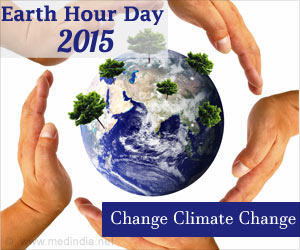With projections of malaria and dengue intensifying in the future, absence of a definite preventive mechanism will only add to woes of communities.

‘The current healthcare system in India is based on 'health-cure'. Ground realities now indicate an urgency for pro-active measures in integrating environment with healthcare.’





But ground realities in India indicate an urgency for pro-active measures in integrating environment with healthcare. In the paper 'Exacerbating Health Risks in India due to Climate Change: Rethinking approach to health service provision' published as part of the new 'Handbook of Research on Climate Change Impact on Health and Environmental Sustainability', the authors advocate a paradigm shift from existing 'cure-based approach to a preventive' one.
Joyashree Roy, lead author of the paper, said, "Right now, the system is a 'health-cure' system. On top of that, limited infrastructure (low per capita availability of hospital beds, doctors and the like), absence of strong monitoring of disease surveillance and rising costs are exacerbating health risks for communities, especially the poor, who do not have access to basic healthcare."
Roy, coordinator of the Global Change Program at Kolkata's Jadavpur University, said, "Poor performance in health indicators puts a major spanner in the works for India's sustainable development framework. To address emerging health risks in a cost-effective way, there is a major need for developing a national preventive healthcare mission under the umbrella of the National Action Plan on Climate Change (NAPCC). This includes issuing advisories, alerts and inter-disciplinary approach with various government departments working in tandem."
Health impacts have become increasingly tangible. Scientists at the National Institute of Malaria Research (NIMR) recently validated direct links between climate-related variability and the dengue season's span in Delhi.
Advertisement
According to climate change and sustainability specialist Sumana Bhattacharya, extreme events like the Chennai floods are a kind of warning for creating specific climate-oriented health systems.
Advertisement
With discussions on drafting a 'mission' on dealing with climate impact on human health under NAPCC in the works, Bhattacharya hoped India will factor in major concerns while mainstreaming preventive healthcare.
Bhattacharya said, "The concern is that there may be emerging diseases, those that are there may escalate and some may go away in high temperatures. This means preventive mechanisms would require assessment of the likely scenarios of the diseases coming in or escalating in different areas of the country."
Developmental economist Duke Ghosh of Global Change Research and the paper's co-author said, "Bridging the gap in healthcare also means symbiosis of traditional disciplines (ayurveda) and allopathy. The challenge is to revive traditional medical systems, make them less individual-oriented and integrate them with the public health system."
Source-IANS











